The Analects
"The Analects of Confucius" is one of the "Classic Trilogy of Chinese Studies", translated and interpreted by Huang Pumin, a professor and Ph.D. supervisor of the School of Chinese Studies of Renmin University of China; - Notes - Today's translation - Interpretation, follow Mr. Huang to systematically complete the entry and advanced of Chinese studies, and truly understand the wisdom of the philosophers.
DKK 88,00
Availability: Only 2 left in stock




Ph.D. in History, professor and doctoral supervisor of the School of Chinese Studies, Renmin University of China.
He has successively served as deputy director of Office 3 of the Strategy Department of the Academy of Military Sciences of the Chinese People's Liberation Army, director of the History Department of Renmin University of China, and executive dean of the Academy of Chinese Studies. He also serves as a director of the Chinese History Society, vice-chairman of the Dong Zhongshu Research Association of the Chinese Confucius Institute, and an executive director of the Chinese Sun Tzu Art of War Research Association.
The main research directions are Chinese intellectual history and Chinese military history. Representative works include: "Huang Pumin's Interpretation of Analects", "Tao Te Ching Explanation", "Sun Tzu's Art of War Interpretation", "Sun Tzu's Commentary", "General History of Chinese Military: The Second Volume of Spring and Autumn Military History", "The Unity of Heaven and Man--Dong Zhongshu and the Study of Confucianism in the Han Dynasty", "Pre-Qin Studies on the military culture of the Han Dynasty", "Great Unification--Research on the Unification Strategy of China in the Past Dynasties", etc.

Preface: Talking about "The Analects of Confucius"
China has a long history, Chinese culture is extensive and profound, and Chinese classics are vast, but those that can be called "classics" are actually relatively limited. These "classics" are the core components of China's excellent traditional culture, determine the basic character of Chinese culture, and become the driving force behind the endless life of the Chinese nation and stand on its own among the nations of the world. Among them, "The Analects of Confucius" is undoubtedly outstanding. one of the representatives.
【one】
"The Analects of Confucius" is a classic of Confucianism. It mainly records the words and deeds of Confucius, the founder of Confucianism and the "master of all ages". words and deeds. This point has already been revealed in Ban Gu's "Hanshu Yiwenzhi": "In "The Analects", Confucius responded to his disciples, people at the time, and his disciples. He also heard the words of the master. At that time, the disciples had their own records. After the master died, his disciples discussed and compiled it with each other, so it is called "The Analects of Confucius." The current version handed down to the world has a total of 20 chapters, starting with "Xue Er" and ending with "Yao Yue", with more than 15,000 characters. The Analects of Confucius is a collection of Confucian words, which is an important document for us to understand and study Confucian thought.
Generally speaking, the content of "The Analects" mainly revolves around the following four basic outlines.
, a theory of political ethics with "benevolence and righteousness" as the mainstay. "Writing in the Six Classics, paying attention to the moment of benevolence and righteousness", reflected in the specific politics is to advocate "rule of virtue" and "kingly way", "Government with virtue, such as Beichen, where the stars live together" . Emphasizes that "the benevolent loves others", "loves all people", "if you want to stand up, build up others, if you want to achieve yourself, you should achieve others", "don't do to others what you don't want yourself to do to yourself".
Second, the principle of rule of ritual characterized by "restraining oneself and returning to ritual". The specific expression is to advocate the general principles of grading in love, respect and order, advocating "the old and the old and the old, the young and the young and the young", "the monarch, the ministers, the father and the son", That is the so-called "the etiquette of ordering the emperor and his ministers, father and son, and listing the differences between husband and wife". For this reason, Ji Jiyu advocates "don't look at anything wrong with the rules, don't listen to anything wrong with the rules, and don't move without the rules".
Thirdly, the "golden mean" thought based on the keynote of "using the medium at the right time", being impartial, and having no faults. "Knock on its two ends and stick to the middle", find and grasp the appropriate degree from it, look at problems dialectically, and never go away in everything. For example, in terms of the relationship between heaven and man, it does not deny the existence of ghosts and gods and the will of heaven, but also emphasizes the role of personnel; On the basis of respective obligations and shared power, "the emperor envoys his ministers with courtesy, and the ministers serve the emperor with loyalty"; in terms of the relationship between literature and quality, he pays attention to both content and form, "quality wins writing and then history, and writing wins quality and history." In terms of ideals and visions, he not only pursues great harmony, "the ancestors describe Yao and Shun", but also looks forward to a well-off life, "constitution of civil and military affairs".
Fourth, the social ideal with the purpose of pursuing "the great unity of the world" is "so great that Yao is the king! So towering! Only heaven is great, and only Yao is the one. Swaying! The people are incompetent. So towering! It is so powerful Success too. Huanhu! It has articles."
Among them, the theories of "benevolence" and "rituals" are the core components of Confucian political thought reflected in "The Analects of Confucius", the thought of "Golden Mean" is the philosophical methodology of Confucius' entire theory reflected in "The Analects of Confucius", and the theory of "Datong" is Confucius' lofty ideals. And lofty social and political ideals.
In the final analysis, the entire "Analects of Confucius" is developed around these four basic outlines.
【two】
In the Western Han Dynasty, among the versions of "The Analects" that were circulated in the world, there were "Lu Lun" handed down by the Lu people, "Qi Lun" handed down by the Qi people, and the "Gu Lun" found by Liu Yu, king of Lu Gong, from the wall of Confucius' former residence. On ", it is written in the ancient characters of the pre-Qin period. The three editions have different numbers of articles: 20 articles in "Lu Lun", 22 articles in "Qi Lun", and 21 articles in "Gu Lun". In the late Western Han Dynasty, Zhang Yu determined that The Analects of Confucius was divided into 20 chapters based on Lu Lun, and combined the two editions of Lu and Qi into one. ". At the end of the Eastern Han Dynasty, Zheng Xuan, a master of Confucian classics, took "Zhang Hou Lun" as the base, and also adopted "Qi Lun" and "Ancient Lun" to annotate "The Analects of Confucius". It is regarded as the final version of "The Analects of Confucius" and passed down to later generations. Therefore, the "Analects" we read today is actually the text with "Lu Lun" as the main body.
It now appears that the compilation of the 20 chapters of "The Analects of Confucius" is not arbitrary, but has its internal logical structure, its integrity and system. Confucianism is a logical and progressive process of establishing people and governing, which is the links and chains revealed in "The Great Learning": sincerity, righteousness, self-cultivation, family harmony, state governance, and world peace. In the middle, self-cultivation is the foundation of everything , and the success of self-cultivation depends on whether you can learn. Scholars refer to and absorb the knowledge of others, which is called "knowledge". Learners, to verify and experience the knowledge they have learned in practice, make it an integral part of their own cognition and ability, integrate it into their own life, and improve their realm, which is called "learning". The combination of the two is the "unity of knowledge and action". This is the starting point of a person's growth, so "Xue Er" naturally became the first chapter of "The Analects of Confucius".
If self-cultivation belongs to the category of "inner sage", then family harmony, governance of the country, and peace of the world undoubtedly belong to the specific manifestation of "outer king". If you are rich, you will benefit the world, and if you are poor, you will be good for yourself. The purpose of "learning" cannot be limited to personal cultivation, it must serve the public and contribute to society. Therefore, Confucius and his disciples advocated participating in politics, "to the emperor, Yao and Shun". According to this logic, "Weizheng", which regards "outside kings" as the destination of life, naturally followed "Xueer" and became "The Analects of Confucius" The second article. And the core purpose of "Government" is "governing the country with virtue", which became the starting point of this article.
Both "inner sage" and "outer king" must have a basis. This "base" is first of all inheritance, looking for evidence and resources from tradition. The so-called "Although Zhou was an old state, its life was restored". Without inheritance, there is no development; without accumulation, there is no innovation. Otherwise, this kind of development and innovation is like a tree without roots and water without a source. And this kind of resource that can be called "base", in Confucius' view, is the "ritual and music" civilization since the Shang and Zhou Dynasties, and more specifically, it is "ritual". Therefore, "Bayi" centered on the word "ritual" becomes the third chapter of the book immediately following "Weizheng".
However, Confucius was a sober realist. He realized that society has undergone earth-shaking changes, and the traditional "rituals" cannot be copied indiscriminately to meet the needs of governing the country. But we must keep pace with the times, "renew every day, renew every day, renew every day", transform it, inject new vitality, add new vitality, put new wine in old bottles, so as to meet various challenges and achieve new transcendence. This new vitality is "benevolence" that is full of humanistic spirit and meets the requirements of the times. It is normally located after "Ba Yi". The following sixteen chapters are also unfolded successively according to this logic, so that the ideological system of Confucius can be presented in an all-round way. Anyone who reads "The Analects of Confucius" should pay attention to the structural order and internal logic of the book. If you can do this, you will get twice the result with half the effort!
【three】
Compared with classics such as "Shangshu" written by Ji Quxunya, "Book of Changes" written by "Wu Da Zhan", "Chunqiu Gongyang Biography" with "many strange meanings and strange theories", the text of "Analects", except " Apart from a few chapters such as "Xiangdang", it should be said that it is relatively smooth and smooth, easy to read and understand. However, it is a work written in the pre-Qin period after all, and you will still encounter obstacles when reading it. In addition, there are many commentaries and interpretations in the past dynasties, and it is inevitable that there will be ambiguity in the reading and interpretation of many content and words. There are different opinions and no consensus. Therefore, no one can guarantee that all his interpretations must be correct. Today, our understanding of the meaning of the words and meanings of "The Analects of Confucius" can only be close to its truth, but we will never be able to fully restore its truth.
Some of the ambiguities that arise during these readings are due to the evaluation of Confucius as a person and as a scholar. For example, "Tabo" tastes: "The people can be controlled, but not known." According to the literal and intuitive understanding, it seems that Confucius was ignorant and condescending towards the common people. The development of "people's wisdom" more or less contains a certain amount of "foolish people". In this way, it somewhat damages its glorious image as a "sage". Therefore, some people changed the way of reading common sentences to excuse Confucius and maintain his nobility and holiness: In this way, the punctuation of this sentence becomes: "People can, let them know; if they can't, let them know." In fact, this It's not necessary at all. It is true that Confucius had benevolent humanistic care, and it is also true that he cared for and sympathized with the people. However, he was a member of the aristocratic class after all, and his deep-rooted basic position was that "only the wise and the foolish are the same". It is impossible for the lower class people to be treated equally. This is also the common value orientation of Confucianism, which is what Mencius said, "He who works hard will rule others, and those who work hard will rule others." We cannot use contemporary values to demand The ancients, "knowing people and discussing the world", this is the proper historicist attitude. Confucius was like this, and his contemporary military strategist grandson was no exception. Sun Tzu did clearly advocate "treating soldiers like babies" and "treating soldiers like beloved sons", but this did not prevent him from viewing the soldiers as "a flock of sheep" and unabashedly advocated that "like driving a flock of sheep, drive them to Therefore, when we read and recognize "The Analects of Confucius" today, we must first try to avoid imitating the past with the present, and we should have a "sympathetic understanding" of the words and deeds of the ancients.
In the process of reading "The Analects of Confucius", some ambiguities arise because of the differences between the different versions used by ancient and modern scholars. There is a very important passage in "Shuer", which involves Confucius' attitude towards "Book of Changes", whether he has studied and studied the life experience of "Book of Changes", the current text expression is this: "add me for a few years, If you study Yi after fifty, you can do nothing wrong." This should be written in a smooth manner, and there is nothing to distinguish and analyze. However, Lu Deming, a Confucian scholar in the Tang Dynasty, mentioned in the "Classic Interpretations" that the "Yi" here, according to "Lu Lun", is "Yi". In this way, the sentence sentence of this passage has to be adjusted, and the meaning has also changed: "If you add me for a few years, and you can learn after fifty years, there is no big difference!" More importantly, the relationship between Confucius and "Book of Changes" , also need to re-evaluate and recognize. Although this point of view is absurd, it cannot be completely denied, because after all, there is "Lu Lun" as a documented basis. Therefore, many people today, such as Guo Moruo and Li Jingchi, believe in this. When we read "The Analects of Confucius" today, we can continue to interpret it according to the current text. However, at the same time, we must also know that many words in "The Analects of Confucius" have other official definitions and interpretations.
When reading and understanding the "Analects of Confucius", there are ambiguities, and even the phenomenon of Ying Shuyan's words, some of which are due to our limited stomach and lack of skill, and there are many weaknesses and shortcomings in terms of writing, phonology, and exegesis. Therefore, it is unavoidable. I am struggling to understand the meaning of the words and texts of "The Analects of Confucius". For example, "Zihan": "Zihan talked about benefit, fate and benevolence." The usual explanation is: Confucius rarely talked about benefit, fate and benevolence. Even the famous scholar Yang Bojun's "Annotations to the Analects of Confucius" also expounded in this way. But after careful scrutiny, we feel that this is not very appropriate, it can be described as full of doubts and troubles. Because Confucius seldom talked about benefits is a fact, and there is no doubt that he adopted a basically negative attitude towards benefits. However, it may not be true to say that Confucius seldom talked about fate. As for saying that Confucius seldom talked about "benevolence", it is even more incredible up. Professor Sun Qinshan once made an academic distinction on this topic, examined the origin of the mirror, and found out the subtleties of the candle. The main idea is: whether it is judged from the meaning or syntactic analysis, the two characters "and" here are not conjunctions in function words. , but a substantive word, its meaning is "approval" and "approval". In this case, the whole sentence should be punctuated as: "Zihan's words are beneficial, life and benevolence." There is no doubt that Sun's statement is well-founded and reasonable. It can be seen that "kungfu is beyond poetry", only by consolidating one's own academic foundation, possessing an outstanding problem awareness, having strengths in learning, specializing in techniques, learning more about doubts, and being eager to learn and think deeply, can one be able to read and understand "The Analects of Confucius" "Hands-on at every turn, comprehending by analogy, retracting freely, lifting weights like light.
In addition, with the passage of time, the meaning of many words in "The Analects of Confucius" has also changed, such as "Gongye Chang": "It is easy to know, but it is too stupid." Yes, but in "The Analects of Confucius", Confucius' comments about Ning Wuzi's "unbelievable stupidity" are just commendatory in a specific context. In Confucius' view, Ning Wuzi's "stupidity" is the real "wisdom", so the true meaning of "stupid beyond reach" is similar to Lao Tzu's "wisdom" as "wisdom". Such a change in the meaning of ancient and modern texts is not an isolated phenomenon in "The Analects of Confucius". We should pay full attention to avoid buying a box for a pearl.
Classics are important and should be read, but there will never be a unified standard on how to read properly and efficiently. Nevertheless, if we can uphold the original intention of "knowledge is endless, and spirit is magnificent", then reading itself is a natural instinct in our lives, which will surely enrich our minds, broaden our horizons, activate our thinking, and enhance our intelligence. realm. This is true for reading "The Analects of Confucius", and it is also true for reading other ancient classics.
You must be logged in to post a review.
Related products
-
Your first investment book
DKK 48,00 -
Mr. Toad went to see a psychiatrist
DKK 70,00
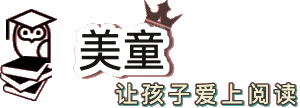

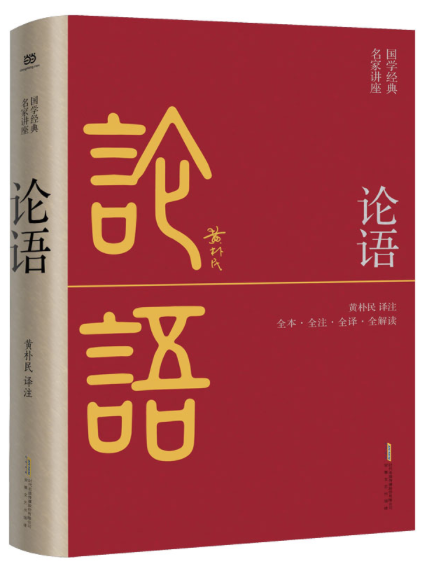
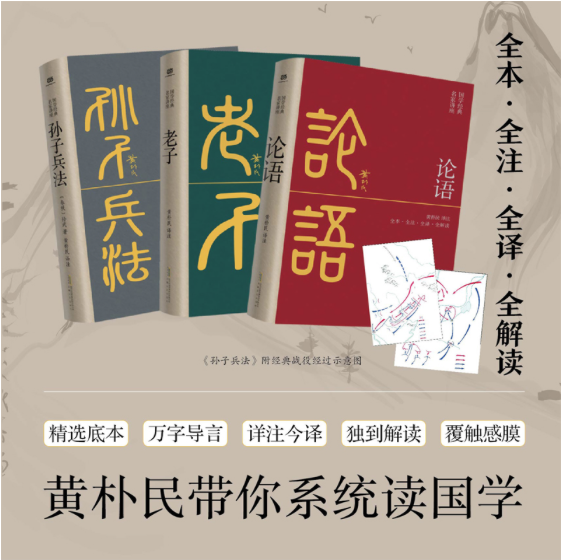
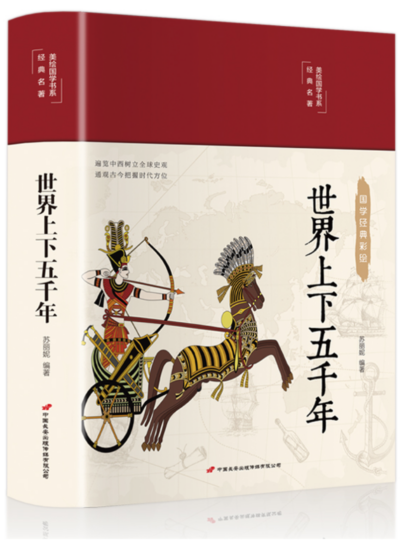
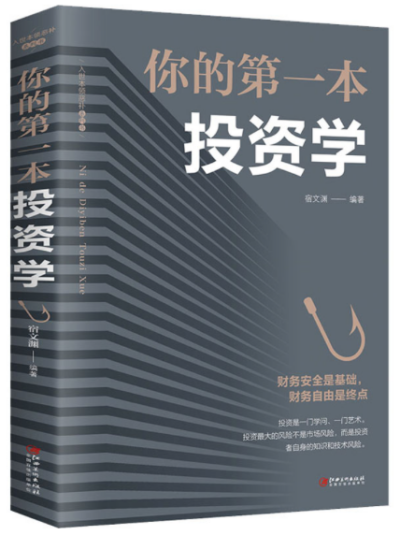
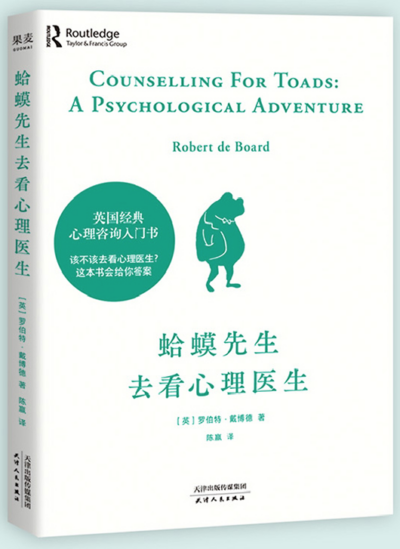
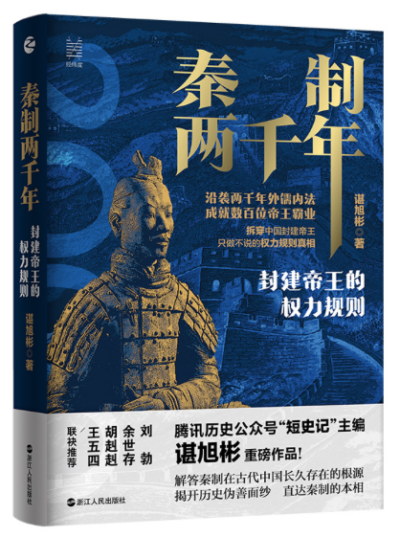



Reviews
There are no reviews yet.